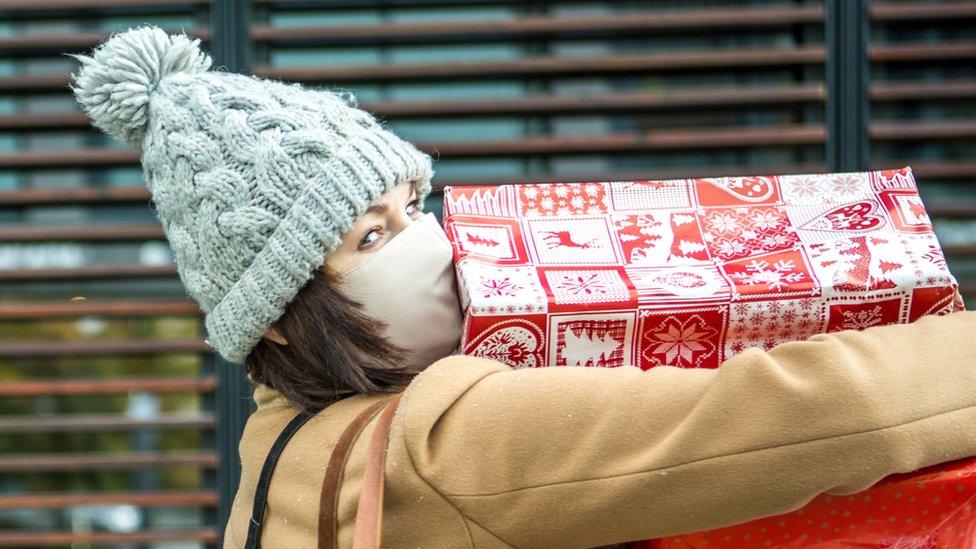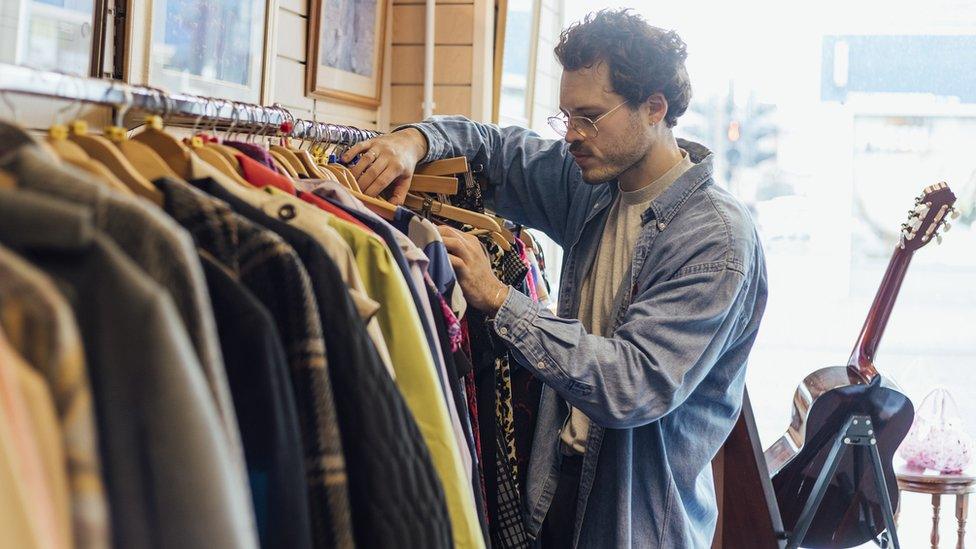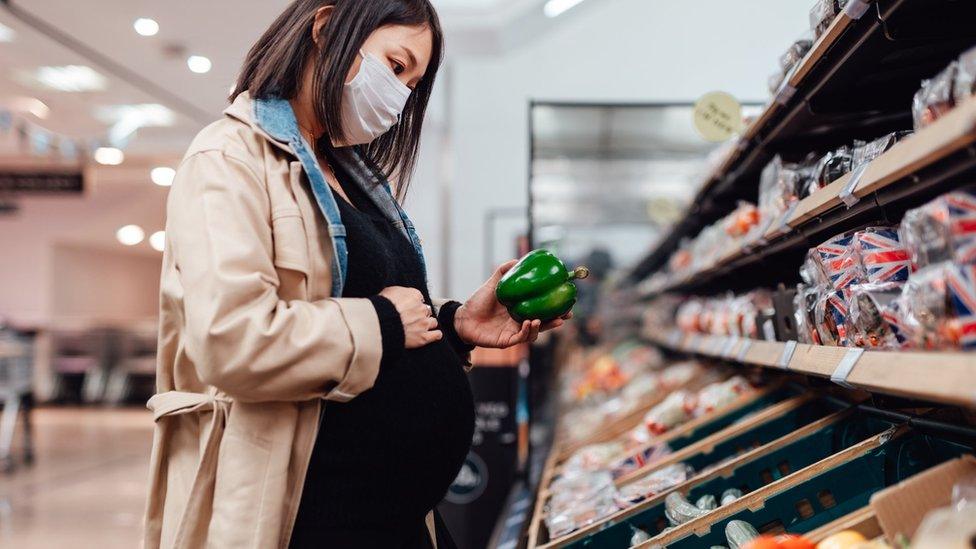Early Christmas shopping lifts retail sales in October
- Published
- comments

Early Christmas shopping helped to push up shop sales in October as people spent more on clothing and on toys.
Sales rose by 0.8% in October, following no growth in September, according to the Office for National Statistics, external (ONS).
Clothing sales reached their highest level since the start of the pandemic, said the ONS.
It also said second-hand stores, like charity shops and auction houses, had seen sales rise.
Sales in clothing stores were only 0.5% below pre-pandemic levels, "with some retailers suggesting that early Christmas trading had boosted sales," the ONS said.
Items that people were buying or pre-ordering earlier than usual for Christmas this year included toys and clothes, shoes and accessories.
"After five months of no growth, retail sales picked up in October," said ONS chief economist Grant Fitzner. "Although sales overall are above pre-pandemic levels, it remains a mixed picture."
Fuel sales fell sharply, returning to more normal levels after the fuel supply crisis in September, and food and online sales also dropped.
Helen Dickinson, chief executive of the British Retail Consortium, said that retailers were putting in "a gargantuan effort" to make sure they had Christmas stock amid continuing supply chain problems.
"Labour shortages throughout the supply chains - from farms to distribution - are pushing up costs and creating some gaps on the shelves," she said.
"Nonetheless, retailers are prioritising Christmas essentials, and many have laid out their festive offerings a little earlier to ensure everyone has time to buy treats and decorations before the big day."
She said that retailers were hoping demand would be sustained throughout the Christmas period. "However, challenges remain, with higher prices looming and many households facing rising energy bills."
Greener and cheaper
The jump in sales in non-food stores, which includes second-hand shops, helped to boost October's figures.
Robin Osterley, chief executive of the Charity Retail Association, said like-for-like sales across the charity shop sector in October were between 3% and 5% higher than before the Covid pandemic - a "very significant" rise.
People's attitudes had been changing towards donating and buying second-hand clothing in particular, he said, in part due to growing environmental awareness.
"To chuck it in the bin is not doing anything apart from filling up landfill," he said. "[And] people want to buy from a good cause."

There is a growing "backlash to fast fashion", he added, saying that people wanted to buy good quality second-hand clothing "that will last".
"We are in a zeitgeist of people wanting to buy second-hand. We see that lasting for a very long time, if not forever," he said.
There are also sobering reasons why second-hand sales are booming, Mr Osterley said.
Many people are finding their household budgets are being squeezed by redundancy or price rises, he said.
"People are coming to charity shops for economic reasons," he said. "They are looking to buy in the most cost effective way. I think inflation is a factor."
The cost of living rose again in October with annual inflation running at 4.2%, its highest rate in almost 10 years.
Between August and September there was a fall in sales volumes in second-hand goods stores such as charity shops, auction houses and antique shops, but sales of expensive items at auction can make this data volatile, the ONS said.
Borrowing dips
Separate figures from the ONS, external showed that government borrowing dipped last month as the economy continued to recover and the furlough scheme wound up.
Borrowing - the difference between its spending and tax income - stood at £18.8bn in October, £200m less than a year earlier.
Despite the fall, the figure still marked the second-highest total for October since monthly records began in 1993.
The interest the government pays on what it borrows also jumped because of rising inflation. The ONS said interest payments tripled in October from a year earlier to £5.6bn.
The government has spent record amounts on emergency measures during the pandemic, such as the furlough scheme, which was designed to protect wages. That was withdrawn completely on 1 October.
Chancellor Rishi Sunak said government support in the pandemic "protected millions of jobs and businesses, but also left us with much higher public debt".
He added that Budget measures "will keep debt on a sustainable path in the years to come".
- Published16 November 2021

- Published17 November 2021

